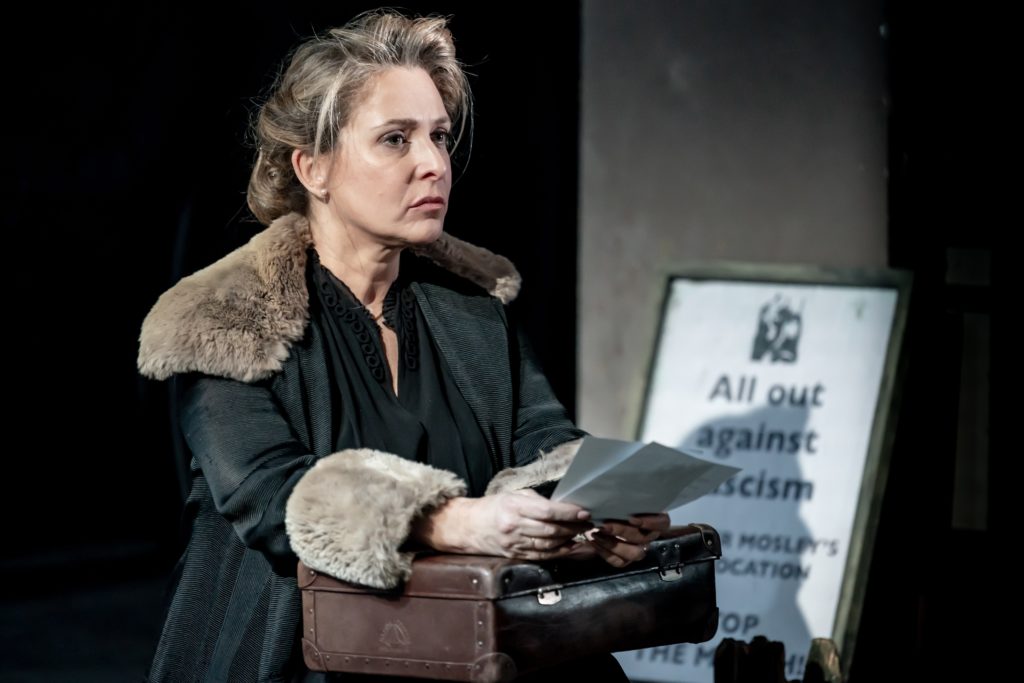
EASTENDERS, Doctor Who and Friday Night Dinner star Tracy-Ann Oberman will play Shylock in a ground-breaking version of Shakespeare’s The Merchant Of Venice on tour at York Theatre Royal from November 14 to 18.
Developed in association with HOME Manchester and with support from the Royal Shakespeare Company, The Merchant Of Venice 1936 has been adapted and directed by Brigid Larmour from an idea by co-creator Oberman.
Their thought-provoking and timely reimagining relocates the action to an electrifying new setting: London in 1936.
“It has a been a lifelong dream of mine to bring this play to the stage in a new way, reimagining Shylock as one of the tough, no-nonsense Jewish matriarchs I grew up around in Brent,” says London-born actress, playwright and narrator Oberman, 57, as she “takes this important, sharp, sexy and heartfelt production around the country”.
“I’m delighted this project is finally happening and look forward to sparking debate and enlightening people about a pivotal but largely forgotten part of British history – just how close the establishment were to Oswald Mosley and his British Union of Fascists.”
In Watford Palace Theatre’s touring production, the capital city is on the brink of political unrest, fascism is sweeping across Europe and Mosley’s fascists are threatening a paramilitary march through the Jewish East End. Strong-willed single mother Shylock, Shakespeare’s anti-hero, runs a pawnbroking business from her house in Cable Street, where Mosley will march.
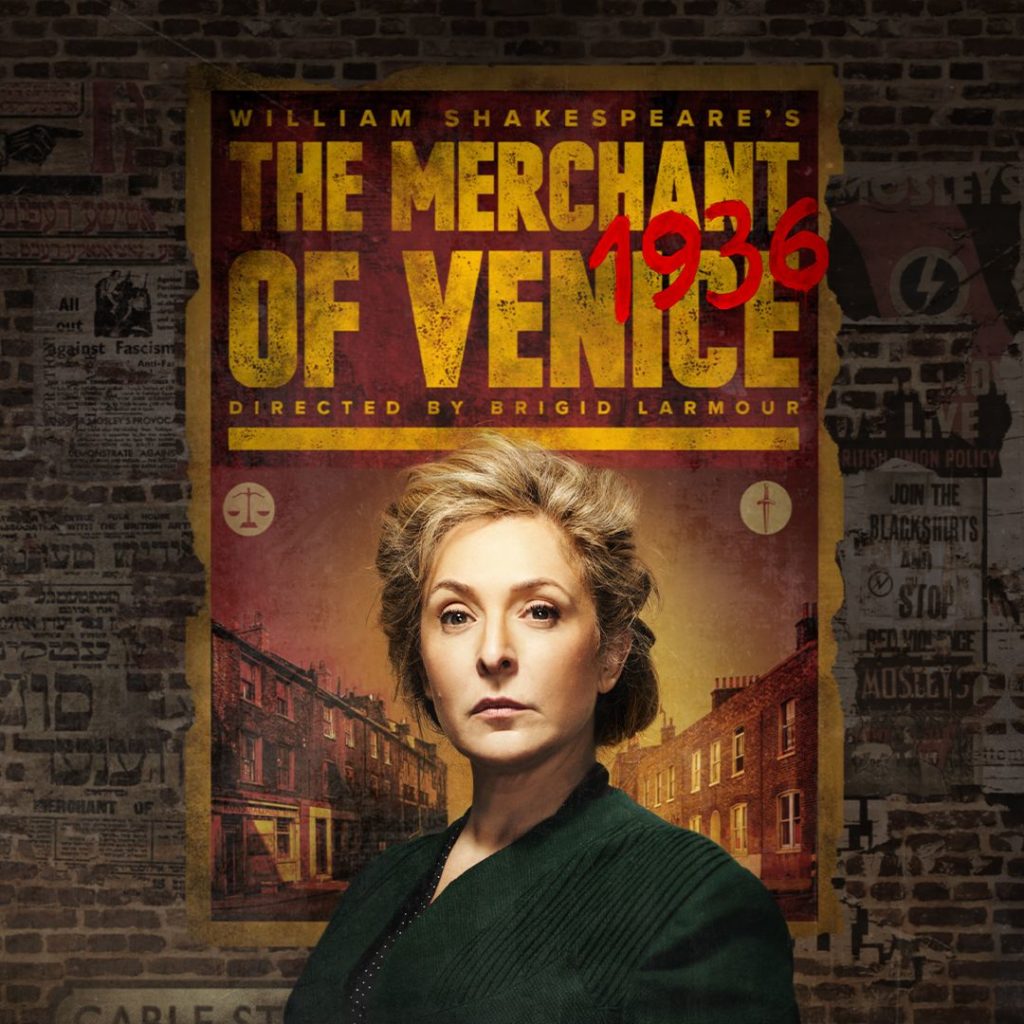
When charismatic, anti-Semitic aristocrat Antonio comes to her for a loan, a high-stakes deal is struck. Will Shylock take her revenge? Who will pay the ultimate price?
“The women in my family were as tough as nails,” says Tracy-Ann, recalling her great-grandmother and aunts, women with nicknames such as Machine-Gun Molly and Sarah Portugal, who arrived in London from anti-Semitic eastern Europe at the turn of the last century to build a life and make a living against the odds.
Oberman’s family history helped her to unlock Shakespeare’s most controversial play. Her relatives survived the Battle of Cable Street in London’s East End in 1936, when the Jewish community was targeted by Mosley’s Blackshirts, only to be confounded when the non-Jewish community stood by their Jewish neighbours.
In The Merchant Of Venice 1936, Oswald Mosley inspires Antonio (Raymond Coulthard), the sneering merchant who takes a loan from Shylock, while heiress Portia (Hannah Morrish) becomes “a beautiful glacial Mitford type – awful”, whose “quality of mercy” courtroom speech bears the mark of hypocrisy, not humanity.
Oberman’s single mother Shylock is fiercely committed, both to her independence and to her daughter. “I have one daughter,” she says. “It’s an intense relationship!”
The Merchant Of Venice had always fascinated and repulsed her, and this production duly sat in her head for years as she researched, planned and waited for lockdowns to pass.
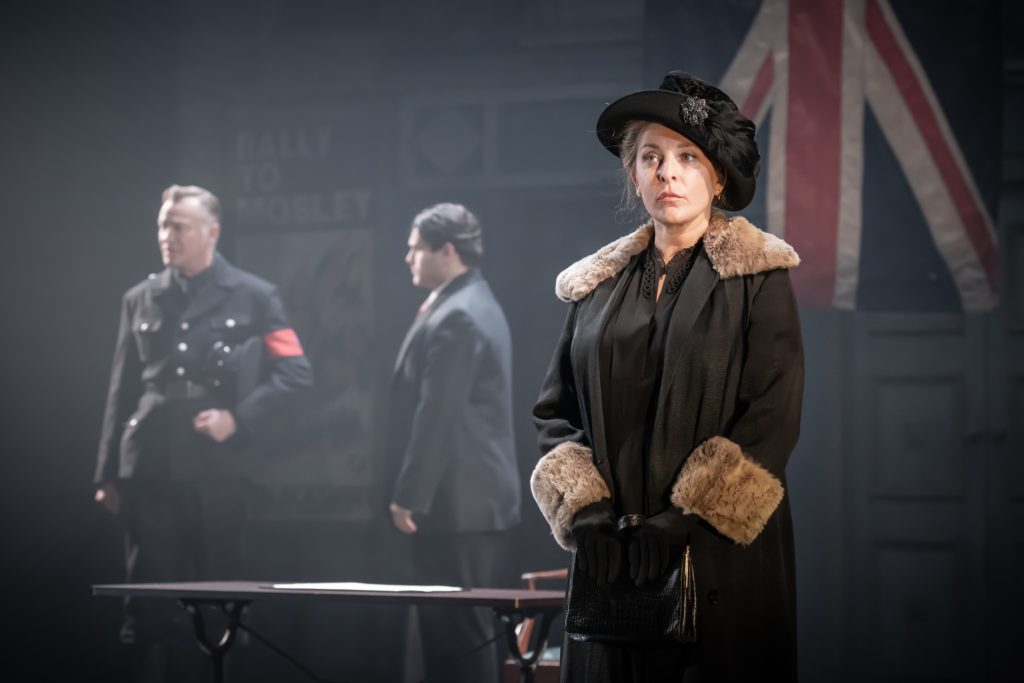
Now that her female Shylock has come face to face with audiences at last, she says: “The thing that surprised me most was the court case. Just how powerful it was to see this woman backed into a corner by all these men, with the palpable hatred and misogyny. It was electric. You could cut the atmosphere in the auditorium with a knife. That was a revelation.”
Playing Shylock as a woman does not soften the character, emphasises Oberman. “I didn’t want to make her a victim or change her role in the story,” she says, before adding: “Maybe I underestimated the impact of a female Shylock. There are a couple of very shocking moments that really upset audiences.
“In an early scene, Antonio comes to borrow money, and Shylock describes him spitting on her and kicking her like a dog. When that behaviour is directed at a woman, it heightens the anti-Semitism.
“I think people also see a woman with her rage and anger. She loses her daughter, her money – she loses everything. And when you tell somebody that they’re a monster for long enough, they become that monster.”
The play speaks as much to the present as of the past. “At a time when we are looking at Britain’s involvement in colonialism and the slave trade, I think we also have to look at Britain’s flirtation with fascism,” says Tracy-Ann.
“Oswald Mosley and King Edward VIII, both great friends of Hitler, came close to power – we dodged a bullet. The great message of the play is about the pulling together of all communities. We’re better together, we’re stronger together, especially at times of huge financial and political insecurity. The past shows us what happens when we look inwards: we become very nationalistic and try to pit minorities against each other. We have to be vigilant.”
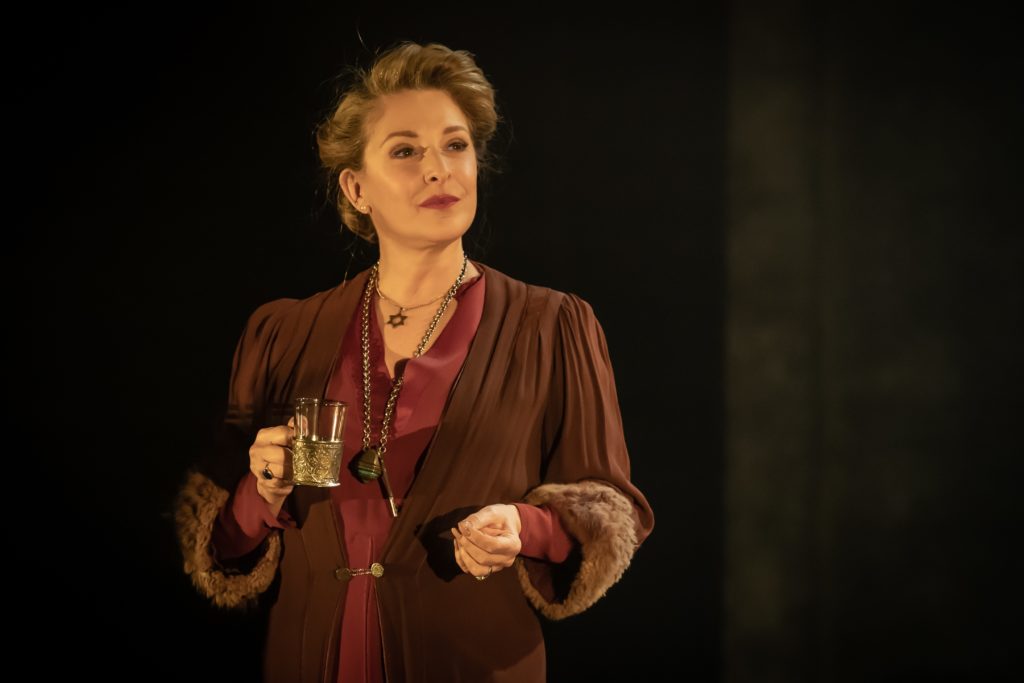
Oberman dreams of the Battle of Cable Street being taught as part of the British civil rights movement. “Mosley had been sending his Blackshirts down into Cable Street, smashing doors, breaking windows, attacking synagogues and people on the streets, putting up the most horrific leaflets straight out of Hitler’s playbook,” she says,
“But my great grandmother always reminded me that their neighbours – their Irish neighbours, the Afro-Caribbean community, the dockers, the working classes – all stood together. That was a beautiful moment.”
Oberman acknowledges how personal this project is to her but audience reactions testify to common ground. “What has been very moving is how many people want to stay and talk at the end,” she says.
“A lot of people talk about their own family’s immigrant experience. Young political people want to talk about the Battle of Cable Street, and people who’d never seen a Shakespeare play about why they’d found it so accessible.
“One man came in with about 20 fascist newspapers from the 1930s that he’d found in his father’s loft, which we’ve used as part of our graphics. There were big conversations: is the play anti-Semitic? Was Shakespeare? Lots of really interesting conversations.”
One factor behind Oberman’s wish to stage The Merchant of Venice 1936 was teachers telling her of their anxiety over discussing this contentious play in their classrooms. This has led to the touring production being accompanied by educational work, mounted in tandem with the activist group Stand Up To Racism.
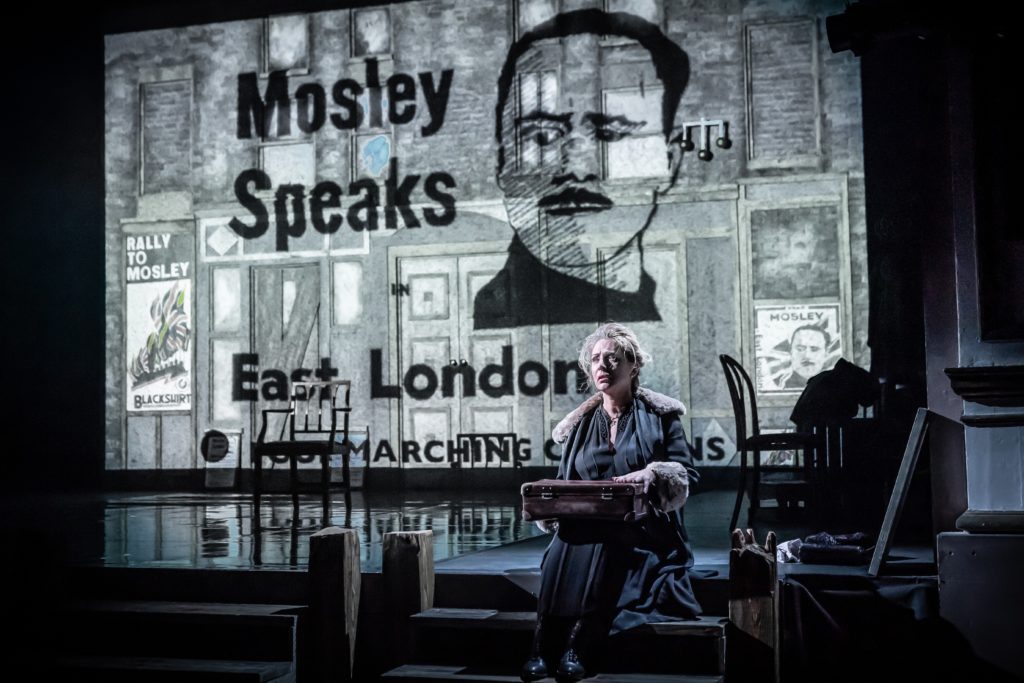
The education team has not only visited schools and prepared a pack to support teachers, but “we’ve also created an online world which people can look at before or after seeing the play,” says Tracy-Ann. “It’s an incredible resource talking about the play, the 1930s, the history of anti-Semitism and racism, Oswald Mosley, everything you could want.”
After a diverse career on stage, taking in the RSC and National Theatre, iconic soap status as Dirty Den’s nemesis, Chrissie Watts, in EastEnders and TV comedy roles as Auntie Val in Friday Night Dinner and Mrs Purchase in Toast Of London, Oberman stands centre stage as the distaff Shylock.
“I can honestly say that when I went into this, it was never with an ego about playing Shylock, it was about wanting to tell the story. I just put my soul into it,” she says. “Every single bit of it has been a complete joy. It’s been more than a piece of theatre – for me, it’s been a mission. And it’s lived up to all my expectations.”
Audience tears and standing ovations have greeted The Merchant Of Venice 1936. “While they might not have liked my Shylock, they certainly understood why she wants that ‘pound of flesh’,” says Tracy-Ann.
“She stands in the courtroom with her handbag, with everything stacked against her. A lot of people know that feeling, believing the law is on their side, but discovering it’s only on the side of people that have power.”
The Merchant Of Venice 1936, York Theatre Royal, November 14 to 18; 7.30pm; 2pm, Thursday, 2.30pm, Saturday. Box office: 01904 623568 or at yorktheatreroyal.co.uk.
Copyright of The Press, York
